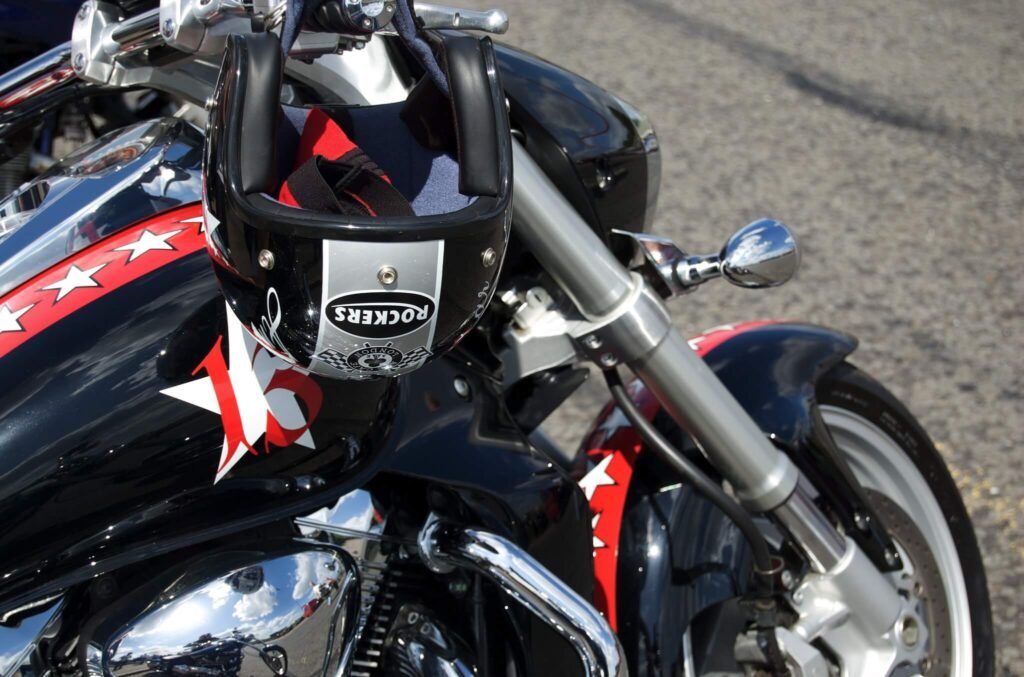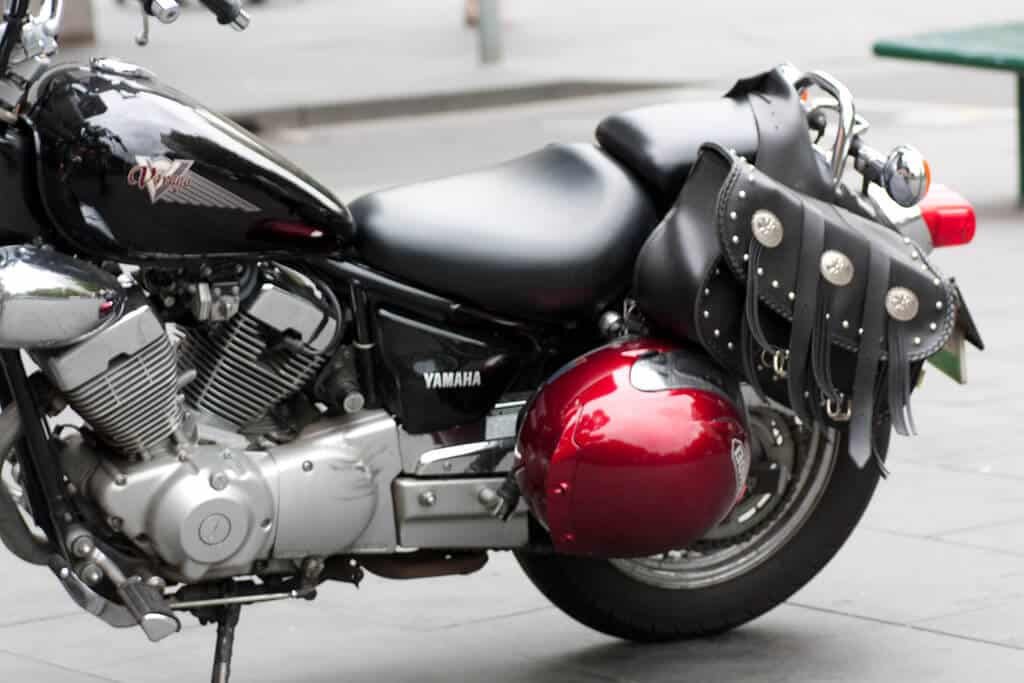The primary purpose of a motorcycle helmet is to protect the rider’s head during an accident. Motorcycle helmets are designed to protect the rider from flying debris and wind noise. When it comes to helmets, riders have many questions about how long they are suitable for and when they need to replace them.
Here we will answer those questions and help you understand how long your helmet will last. We will also suggest some tips on keeping your helmet in pristine condition.
How long is a motorcycle helmet good for?
Helmet manufacturers recommend replacing helmets every four to five years due to factors like daily use, prolonged riding, and exposure to sweat and environmental elements, which can degrade the helmet. However, this is just an average and some may need to be changed sooner if they are damaged or suffer wear and tear.
Additionally, if you are involved in a motorcycle accident, it is recommended that you replace your helmet even if it does not appear to be damaged. Furthermore, you will also need to replace your motorcycle helmet if you lose or harm any of its parts, such as the visor.
What are the factors that affect the lifespan of a motorcycle helmet?
Motorcycle helmets have a long lifespan due to several factors. Some of them are:
1. How often do you ride:
If you ride frequently, then your helmet will have a shorter lifespan than someone who only rides out occasionally. Due to wear and tear, its lifespan will decrease as it ages. People who only ride occasionally can expect their helmets to last five years or more.
2. How well do you take care of it:
When you’re not riding, how well do you take care of your helmet? If you live in a humid environment, it’s critical to make sure that your helmet is properly ventilated and stored in a dry place.
If you live in a dry climate, it’s wise to make sure that your helmet doesn’t get too much sun exposure, as this can cause the materials to degrade. Either way, it’s critical to clean your helmet regularly and inspect it for any signs of damage.
3. What kind of riding do you do:
When you do a lot of off-road riding, your helmet will probably not last as long as if you only ride on the street. The off-road environment is much harsher on helmets than on pavement.
After a crash, you should inspect your helmet for any damage and replace it if necessary. However, if you only ride on the street, your helmet should last much longer.
4. Quality of the helmet:
The quality of the helmet also plays a role in its lifespan. A high-quality brand helmet that is properly cared for can last for many years, while a cheap helmet that is not well-made or properly cared for will not last nearly as long.
In case of a crash, a high-quality helmet will protect your head better than a cheap helmet, so it is worth it to invest in a good-quality helmet.
Why does a motorcycle helmet expire?

A motorcycle helmet expires because the materials and construction degrade over time. The expiration date is usually five years from the date of manufacture, but check your helmet’s label for the specific date.
A used helmet may be expired if it has been involved in a crash. Materials in helmets break down with age and lose their protective properties.
The straps and padding also deteriorate, which can affect the fit of the helmet and make it less effective in a crash. If you’re not sure if your helmet is expired, take it to a certified motorcycle safety course instructor or a qualified motorcycle mechanic for inspection.
Wearing an expired helmet is not illegal, but it is not recommended. If you do wear an expired helmet, be sure to replace it as soon as possible.
Are there any drawbacks to using an expired motorcycle helmet?
Yes, there are several drawbacks to using an expired helmet, and a few of them are given below:
1. Not providing enough protection:
An expired helmet may not provide enough protection in case of an accident. It may not be able to withstand a strong impact because the material used in it has weakened over time.
2. May cause neck injuries:
Wearing an expired helmet may cause neck injuries in case of an accident. It happens because the helmet may not fit properly anymore and may slip off, causing the person’s head to be thrown forward suddenly. This can lead to neck strain or even whiplash.
3. Obscured vision:
The visor of an expired helmet is more likely to get scratched or damaged, which can obscure the vision of the rider and lead to accidents. In addition, the straps of an expired helmet may be loosened, which can cause the helmet to fall off while riding.
4. Reduced comfort:
An expired helmet is likely to be less comfortable than a newly purchased one since the padding inside it would have become stiffer and less springy over time. Long periods of use may cause fatigue and headaches. Moreover, the straps and other parts of the helmet may also become brittle and break more easily.
5. Risk of disease:
If an expired helmet is not cleaned properly, it can become a breeding ground for bacteria and other microorganisms. Infections and diseases can result, especially if someone with a weakened immune system wears a helmet.
6. Environmental pollution:
Disposing of an expired helmet properly is imperative, as it can pollute the environment if not done so. The materials used in the helmet, such as plastics and metals, can release harmful toxins into the air and soil. This can contaminate water sources and harm plants and animals.
7. Financial waste:
Buying a brand-new helmet is always preferable to using an expired one as it would be a waste of money to do so. In addition, it is critical to remember that a helmet is a safety device and should not be used if it does not provide adequate protection.
Tips to protect the motorcycle helmet to prolong its life:

Protecting your motorcycle helmet is essential to maintaining its quality and lifespan. Here are some tips to help you keep your helmet in good condition:
• Store your helmet in a cool, dry place when not in use.
• Avoid placing your helmet near heat sources, such as radiators or fireplaces.
• Don’t expose your helmet to direct sunlight for extended periods.
• Regularly clean your helmet with a mild soap and water solution.
• Inspect your helmet regularly for signs of wear or damage.
• Replace your helmet if it sustains any significant damage.
By following these simple tips, you can help ensure that your motorcycle helmet will provide you with years of protection and enjoyment.
FAQs
Final Verdict:
To ensure your motorcycle helmet is protecting you adequately, it should be replaced every five years. However, you should replace your helmet right away if it gets damaged in any way.
You should routinely check your helmet for wear or damage and clean it with a mild soap and water mixture. By paying attention to these easy guidelines, you can be sure that your motorcycle helmet will give you years of protection and enjoyment.
To conclude this guide, we have discussed the time limit of a motorcycle helmet. We also have discussed why it is essential to replace the helmet, and some tips to follow for maintaining your motorcycle helmet.
